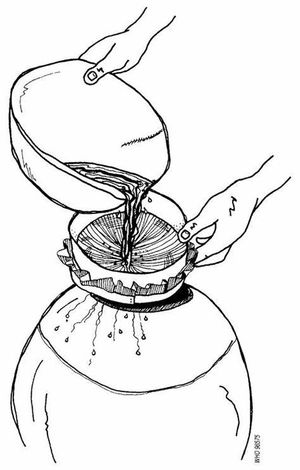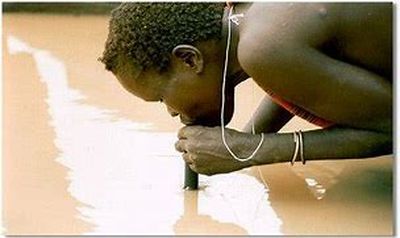President Jimmy Carter and Water Filters
President Jimmy Carter died in January of 2025 at the age of 100. After he left office and up until his death he devoted his energies to many worthwhile projects. Perhaps most frequently mentioned is his untiring support for Habitat for Humanity. Less frequently mentioned is his effort to wipe out the infestation of Guinea Worm that plagued millions of the poorest of the planet’s residents.
One of ex-president Jimmy Carter’s great contributions to the world was providing, distributing and popularizing water filters.
The parasite Guinea worm sounds like something out of a horror movie. People become infected by drinking contaminated water or eating undercooked fish, when the worms are very small. Then the worm grows and grows. It sometimes takes a year for the infected person that he or she is infected. That’s when the creature breaks through the skin of the legs or feet, causing extremely painful blisters that can be debilitating.
Humans cannot develop resistance to the worms, according to Scientific American’s Charles Schmidt, and the traditional process of removing them is painstaking: gently winding an emerging worm around a stick and pulling it slowly out, usually just an inch or two each day, in a process that can last for weeks. Pulling too fast or too hard might cause the worm to break off in the body, leading to secondary infections. When victims suffer from multiple worms—such as a Nigerian man who had a record-setting 84 in his body at one time—the excruciating recovery work compounds.
In the mid 1980’s, there were about 3.5 million cases of Guinea worm around the world. Now, only about 11 people are known to be infected. President Carter’s goal was to see the total eradication of the guinea worm problem before his death. He got close.
The near eradication of Guinea worm is part of the legacy of Jimmy Carter, whose work with his Carter Center targeted overlooked diseases that most often affect poor people in remote areas. The effort didn’t involve drugs, but relied on public education around disease transmission, and providing safe water supplies like filters.
The filters themselves were not high-tech systems developed by massive grants and years of experimentation. They were simple filter straws that strained out worm-producing organisms from unsafe well or river water, or simple, inexpensive cloth filters that filtered unsafe water as it was poured into a water pot.
Simple cloth pour-through filters are very effective at preventing guinea worm infestation.
A typical cloth filter used in Ghana is manufactured by the Swiss company, Vestegaard and it has openings of 100-120 micron pore size.
Drinking water direct from a contaminated river through a simple and inexpensive hand-held filtering device.
Learn more about the Guinea worm campaign and Carter’s war on neglected diseases from Goats and Soda, NPR’s global health blog.






